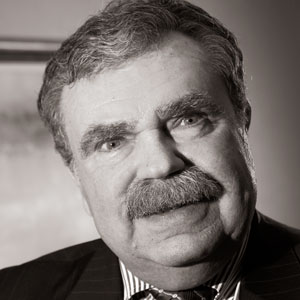Why should advisors embrace philanthropy?
Because that's where the money is.
Willie Sutton, Famous Bank Robber Tweet
At last count, $84 trillion is expected to pass intergenerationally between now and 2045. That’s not a typo.
This wealth transfer means that the children of Baby Boomers and the Silent Generation will soon be calling the shots on assets their parents’ advisors currently manage. Every affluent child has at least one fraternity brother, sorority sister, neighbor, coworker, or fellow parishioner in the financial services business. The moment Mom and Dad pass, move to Florida, or become incapacitated, those assets are on the move.
Unless you, the advisor, have already established a relationship with the next generation, you’ll be replaced before the ink dries on the obituary.
How do I know?
That’s exactly how I built my own book of business—by becoming the trusted resource for my peers as they stepped in to manage their aging parents’ wealth.
The Psychology Behind Legacy Planning
Think Maslow’s Hierarchy of Needs.
If you’ve done your job managing assets, your clients’ basic needs—food, shelter, safety—are already met. But once people reach a certain level of financial security, they’re not asking “How much do I need?” They’re asking:
“How will I be remembered?”
This is where philanthropy becomes the ultimate value-add.
- A wing named in their honor at the local hospital.
- A scholarship fund for their alma mater.
- An endowment that supports their faith, culture, or community.
- A family legacy that teaches the next generation to give.
If you’re not asking these questions, another advisor will. And eventually, so will your client’s children.
The Intergenerational Opportunity
Philanthropy is a safe, meaningful entry point to bring heirs into the conversation. It transcends money management—it invites values, vision, and family legacy to the table.
When you invite children into these discussions—when they see how charitable strategies can preserve inheritances and extend impact—they start to view you as more than a money manager. You become a multi-generational guide.
And here’s something else you might not have considered: The average high net worth family supports 14 charitable organizations. The savvy advisor sees this as a referral network in disguise—a bridge to:
- Other nonprofit organizations their client supports, and
- Other high net worth families aligned with those same causes.
Suddenly, you’re not just managing wealth. You’re being invited into circles of influence most advisors never reach.
A Rollover Revolution Is Coming
Boomers and Silents had 1–3 jobs over their lifetimes.
Gen X and Millennials? They’re expected to have 6–10.
Each job change triggers IRA rollovers.
If you’re the advisor who impressed them through philanthropic planning—who helped their parents make a lasting impact and guided the family through wealth conversations—you’re first in line for those assets as careers evolve.
So, Why Should Advisors Embrace Philanthropy?
Because:
- It opens the door to family conversations.
- It protects your book of business from attrition.
- It elevates your role from manager to legacy architect.
And yes—that’s where the money is.

Viken Mikaelian, CEO
PlannedGiving.com






